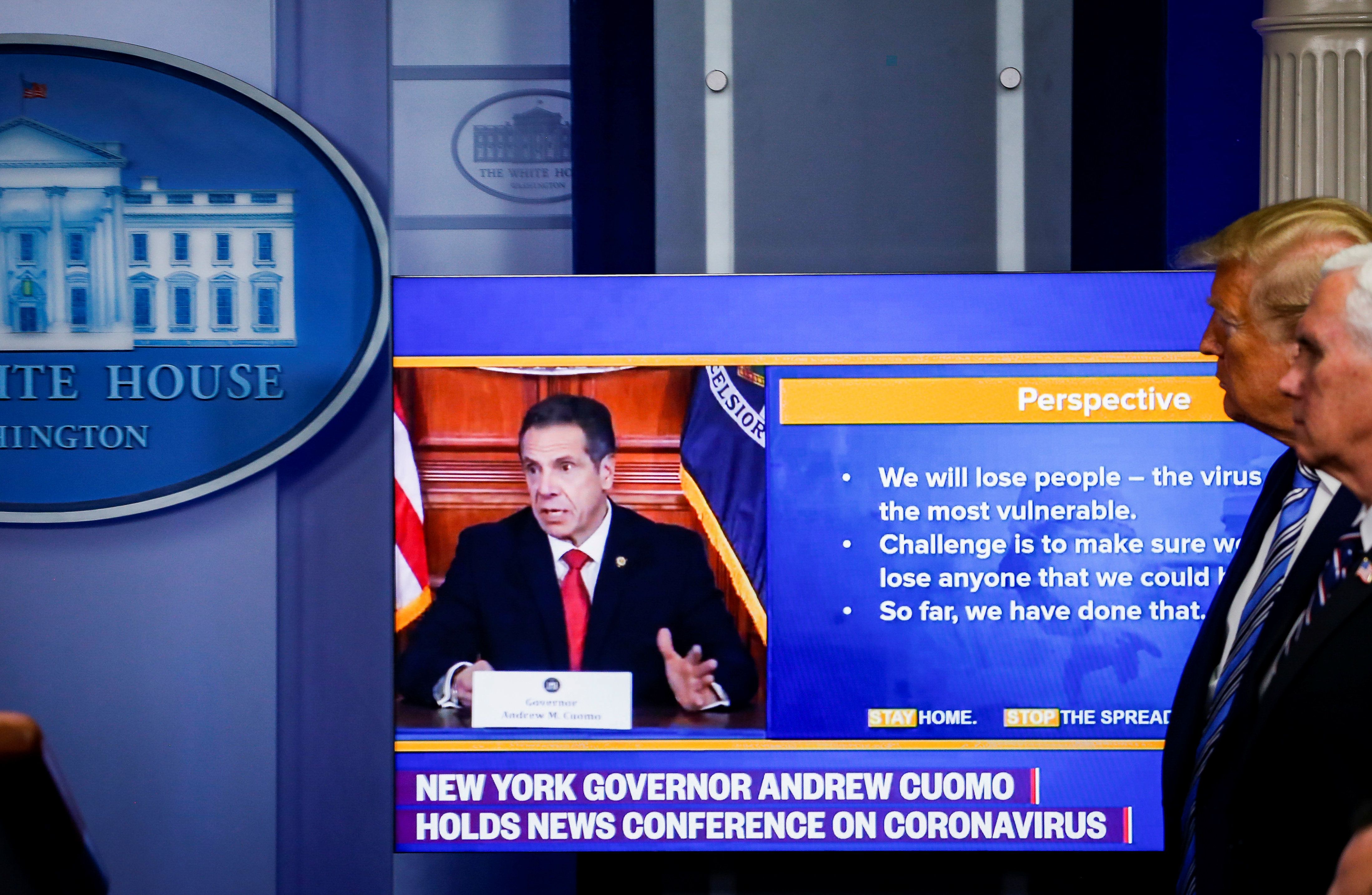A public health emergency with no end in sight and free-falling economy aren't ideal conditions for a leader to win re-election..
So, what's President Trump's sales pitch going to be? It's a long way from here to November, and it's hard to know what the 2020 "corona-campaigns" will look like. But over the past several days, two aspects of Trump's re-election strategy have become clear.
First, blame China for coronavirus. After all, Beijing hid information about the earliest coronavirus outbreaks, making it harder for the rest of the world to see what was coming. (In fairness, China's draconian lockdowns later bought the rest of the world more time to prepare.)
GOP leaders and conservative media outlets are now hammering China, framing the pandemic as the latest, clearest example of the existential threat that China poses to the USA. Trump's campaign, meanwhile, is painting Joe Biden, his election opponent, as an establishment politician who's been soft on Beijing for decades. Check the #BeijingBiden hashtag. For his part, Biden shot back with an ad framing Trump as too soft on China.
Here's the problem with this...For one thing, a rhetorical assault on China could jeopardize the fragile trade progress that Trump and Xi Jinping made last fall. It's one thing to wage a trade war on China when unemployment is at a half-century low of 3.5 percent. It's quite another when that figure could soon be six times as high. In fact, the administration has already begun suspending or deferring tariffs on Chinese goods, recognizing the hardships they pose for American firms in a time of coronavirus-induced economic distress.
What's more, America's hospitals need China's help to fight the virus: the US is still heavily dependent on Chinese-made medical equipment to properly equip frontline healthcare workers battling the disease.
So, Trump must tread carefully, which is one reason why his statements on China range from overt criticism (both on and off the record) to solidarity with China's President Xi Jinping.
The second pillar of his strategy is to play the role of "Grand Re-opener in Chief." He'll leave local authorities to sweat the details of how to balance public health with economic well-being, while urging governors to "reopen" and inciting insurrection against (Democratic) ones that don't. With more than 20 million Americans freshly out of work, Trump is looking to exploit understandable economic frustrations.
Here's the problem with that...Re-opening the economy too soon could re-inflame the public health crisis and, as a result, force a new economic lockdown. In that scenario, Trump would face epidemiological, economic, and political disasters all at once.
Ironically, the best situation for Trump politically is one in which ongoing lockdowns continue. They can keep the virus in check while allowing him to blame the economic damage on governors all summer. But with governors from his own party in key electoral states like Texas and Florida already moving to re-open earlier than public health experts advise, Trump could still find himself responsible for some very frightening results.
